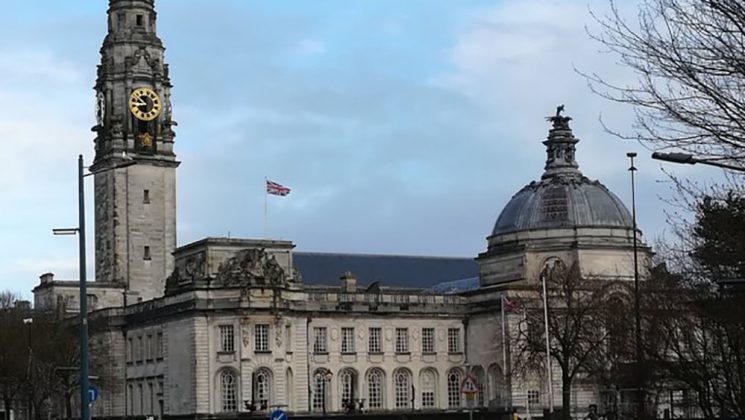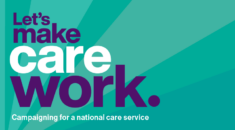It is worrying that the number of health and safety reps in workplaces nationally keeps decreasing, North West delegate Gaynor Clarke told representatives of UNISON community workers gathered in Cardiff City Hall at the weekend.
Speaking to delegates at the union’s community service group conference, she added: “We need them in the community sector,” citing the ever-present risk of violence from vulnerable clients.
“We’re in the business of protecting the most vulnerable people,” she said, “and in our workplace that means our members.”
Introducing the service group’s annual report at the start of conference, chair Malcolm Gray had recalled work over the past year promoting the union’s Violence at Work charter which “has led to real improvements with employers committing to best practice”.
But there is still a lot of work to be done, conference agreed.
As Anjona Roy, speaking for the service group executive in the health and safety debate pointed out, the work done on the charter “is a tribute to our union”. But at the same time, “the red-top media attack on health and safety has been relentless, against a background of austerity, which is a political choice with chosen victims”.
Conference agreed and called on the union to continue promoting the value of health and safety and the importance of union health and safety reps.
Tackling racism in our workplaces
Conference agreed to work with employers and the union’s national Black members’ committee to identify best practice on tackling racism in the workplace and highlight successful measures to counter it.
As Judy Richards, representing the national Black members’ committee reminded delegates: “We live in a society in which good and bad exists in all forms and in all places.”
Moving the successful motion on behalf of the service group executive, Doreen Davies said that while “UNISON sees the continuing struggle for racial equality as a continuous priority, to many employers see it as yesterday’s business which they have tackled.”
Yet a UNISON survey of members working for community and voluntary organisations showed that three out of four reported feeling isolated, while two out of every five had experienced racial abuse.
Sleeping in, losing out
Delegates expressed their concern at the “shocking picture” painted in last year’s Sleeping In, Losing Out report, with staff suffering physical and verbal abuse while on overnight care shifts and many reporting that they are forced to use dirty mattresses and often have no washing facilities.
Conference vowed to continue campaigning for a care sector “which is adequately funded, helping to ensure care staff no longer have to experience the kind of shocking conditions outlined in the report”.
Speaking in support of the call, service group executive speaker Kevin Jackson referenced the recent Supreme Court hearing where UNISON appealed against a decision that staff-working sleep-in shifts are not covered by minimum wage legislation because the shift doesn’t count as work.
“How can you be allocated work, but not working?” he asked. “How can you have health and safety concerns about a sleep-in room, but not be at work? How can you be suspended from work for not turning up for a sleep-in shift, but not be working?”
Making it fair for social care
“The whole system of social care delivery is wrong, and so is the funding of it.” That was the bald statement from Hassan Ortega as conference discussed the funding of adult social care in the UK.
He pointed out that the ownership chains in the sector means that car providers are usually part of a group, itself owned by a hedge fund, whose own owners are hidden in the Cayman Islands and other tax havens.
And that means that £261 million of the income paid to the 126 largest care providers goes to pay off debt, owed to the hedge funds higher up the ownership chain, and £117m of that goes to offshore companies.
At the same time, care workers are struggling on low pay – sometimes less than the legal minimum wage. It is no wonder, he said, that staff turnover in the industry is at 31%, twice the average in the economy.
Francis O’Ryan from Gloucester added that “social care workers over the last 10 years have seen their salaries decrease in real terms while their workloads increased”.
Conference backed a call for a “vigorous” campaign to win proper investment, training, pay and value for members in social care.
Protecting the housing supply
Housing featured heavily on the conference agenda, particularly when it came to ensuring a supply of both affordable and socially provided homes.
Conference was meeting in a country which has already abolished the right to buy which moves collectively provided housing into private hands.
Speaking before the business of conference Welsh first minister Mark Drakeford pointed out that there are the same number of homes for rent in Cardiff as before Margaret Thatcher’s government introduced the right to buy in the 1980s. All that happened before this government ended the policy was that the homes moved from being socially rented into the privately rented sector.
Delegates called for a halt to government plans to extend the right-to-buy policy to housing association properties in England.
They also backed an emergency motion calling for a halt to recently announced Westminster proposals to divert money intended to provide affordable homes in England and instead use it to offer discounts on new properties for purchase in England.
While the government is consulting on the so-called ‘first homes’ proposals, Karl Lewis of the union’s housing associations branch warned: “You can’t take this money away from housing associations after slashing grants for a decade.”
And SGE speaker Mitsy Harmon-Russell told delegates that the proposals “will see money go to housebuilders, not into affordable homes and will just inflate house prices more”.
Community in the community
Conference urged community branches to work with community organisations in their local areas on campaigning issues.
Delegates particularly noted that Citizens UK has a proud history of working with UNISON and campaigning issues such as low pay, holiday entitlements and sick pay for vulnerable and casualised workers and “these are trade union issues,” as national executive council member John Gray noted.





